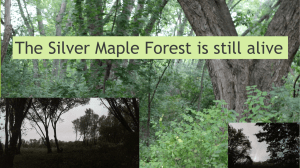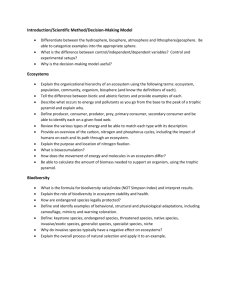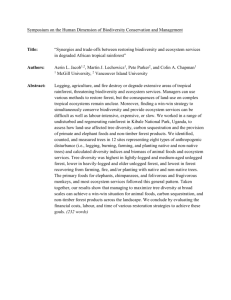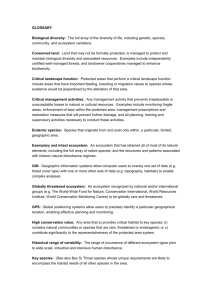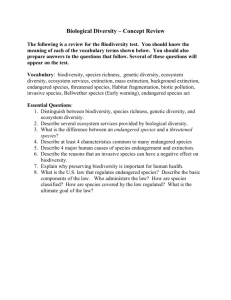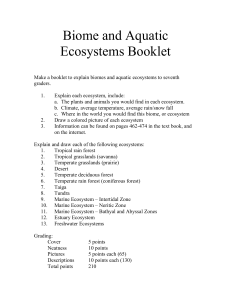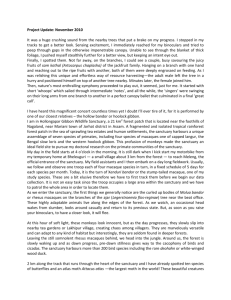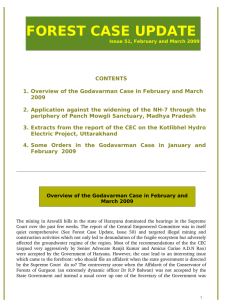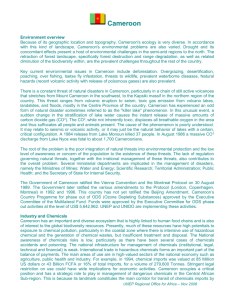TOURISME COMMUNAUTAIRE « MOGHESO »
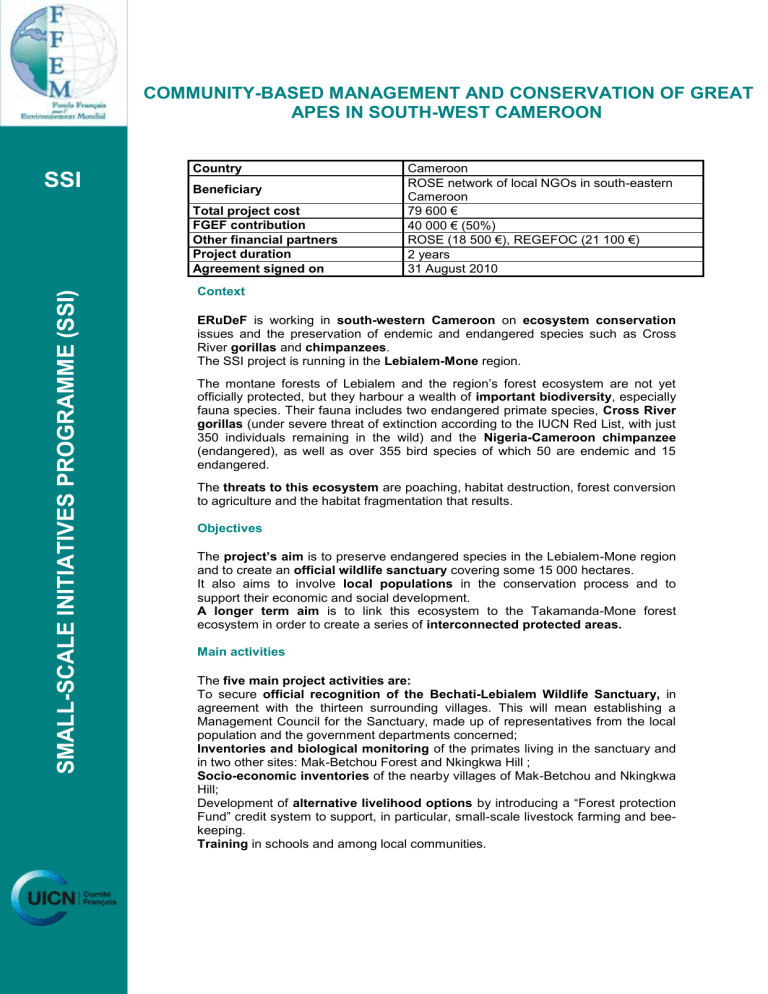
SSI
COMMUNITY-BASED MANAGEMENT AND CONSERVATION OF GREAT
APES IN SOUTH-WEST CAMEROON
Country
Beneficiary
Total project cost
FGEF contribution
Other financial partners
Project duration
Cameroon
ROSE network of local NGOs in south-eastern
Cameroon
79 600 €
40 000 € (50%)
ROSE (18 500 €), REGEFOC (21 100 €)
2 years
31 August 2010 Agreement signed on
Context
ERuDeF is working in south-western Cameroon on ecosystem conservation issues and the preservation of endemic and endangered species such as Cross
River gorillas and chimpanzees .
The SSI project is running in the Lebialem-Mone region.
The montane forests of Lebialem and the region’s forest ecosystem are not yet officially protected, but they harbour a wealth of important biodiversity , especially fauna species. Their fauna includes two endangered primate species, Cross River gorillas (under severe threat of extinction according to the IUCN Red List, with just
350 individuals remaining in the wild) and the Nigeria-Cameroon chimpanzee
(endangered), as well as over 355 bird species of which 50 are endemic and 15 endangered.
The threats to this ecosystem are poaching, habitat destruction, forest conversion to agriculture and the habitat fragmentation that results.
Objectives
The project’s aim is to preserve endangered species in the Lebialem-Mone region and to create an official wildlife sanctuary covering some 15 000 hectares.
It also aims to involve local populations in the conservation process and to support their economic and social development.
A longer term aim is to link this ecosystem to the Takamanda-Mone forest ecosystem in order to create a series of interconnected protected areas.
Main activities
The five main project activities are:
To secure official recognition of the Bechati-Lebialem Wildlife Sanctuary, in agreement with the thirteen surrounding villages. This will mean establishing a
Management Council for the Sanctuary, made up of representatives from the local population and the government departments concerned;
Inventories and biological monitoring of the primates living in the sanctuary and in two other sites: Mak-Betchou Forest and Nkingkwa Hill ;
Socio-economic inventories of the nearby villages of Mak-Betchou and Nkingkwa
Hill;
Development of alternative livelihood options by introducing a “Forest protection
Fund” credit system to support, in particular, small-scale livestock farming and beekeeping.
Training in schools and among local communities.
Impacts
The project will improve scientific knowledge of the specific characteristics of great apes in the area, significantly reduce pressures exerted on the ecosystem by natural resource use and put an end to poaching of the primates.
The project will also undertake capacity-building for local populations to introduce better forest management and improve local livelihoods .
Finally, the project is expected to secure official recognition of the Sanctuary by government decree , which will significantly improve real protection.
